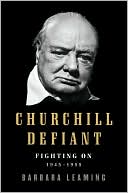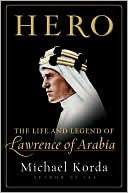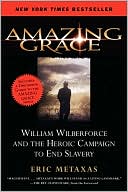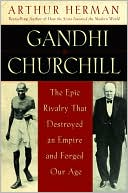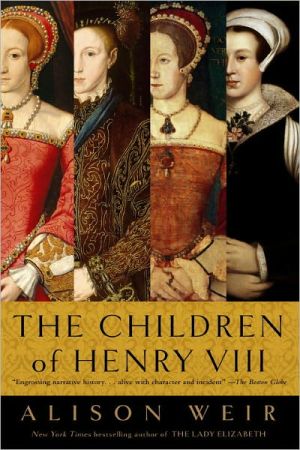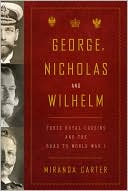Churchill Defiant: Fighting On: 1945-1955
Search in google:
Winston Churchill rages against time and his own mortality in this tumultuous political drama of his last ten years of public life. Here is Churchill at his most outrageous, maddening, and devious—but also at his most human, courageous, and defiant. "I am an obstinate pig." This was how Winston Churchill described himself. At the end of July 1945, Winston Churchill was a defeated man—hurled from power by the British people at the end of the war in which he had just saved his country. Churchill Defiant is the story of how, when it seemed impossible, Churchill fought his way back over the next six years to the center of great events—the only place he ever wanted to be. In 1951, at last prime minister once more, he was ready to begin his dash to win "the last prize I seek": the enduring peace that had eluded the world after Hitler's defeat. But Churchill's battles were just beginning. He would have to wage war with both his closest colleagues and his most indispensable allies, the Americans, to get where none of them wanted him to go: the negotiating table with the Soviets. Barbara Leaming has written a gripping, fast-paced narrative of bare-knuckle politics, of life-and-death decisions, of old grudges and fresh blame. It is the story of how, between 1945 and 1955, Churchill simultaneously fought to prevent a third world war and to defy his own mortality as the clock ticked away and time threatened to run out for him. This is Winston Churchill in close-up—a compelling, vivid, and deeply poignant portrait of the great man at a time when almost no one wanted him to remain on the public stage and when he was willing to do absolutely anything to stay there. Publishers Weekly It was the grandest of evenings. On April 4, 1955, the young Queen Elizabeth II paid her prime minister, Winston Churchill, the compliment of coming to dine at 10 Downing Street. The occasion was Churchill's retirement from the pinnacle of power after his second reign as prime minister. Wearing knee breeches and the blue sash of the Order of the Garter, Churchill saw her out just before midnight. He bowed and took her hand. An era seemed to be ending, one generation giving way to another; at last it would be Anthony Eden's turn. Back inside, Churchill sat gloomily on the edge of his bed. "I don't believe Anthony can do it," he mused. The remark was, in a way, the last, private whimper from the man William Manchester indelibly called "The Last Lion." The scene, with its revealing and surprising glimpse of Churchill behind the curtain in his final political chapter, tells us much about the complexities and contradictions of Churchill at the end, and it closes Barbara Leaming's new narrative. Leaming, most recently the author of a fine biography of John F. Kennedy, has given us a concise history of Churchill after the trumpets. Readers who know him only as the hero of 1940 will be surprised to find an all-too-human politician in these pages, a man who lived for power and was driven by a noble dream: the making of peace in a nuclear age. Churchill's is one of the most chronicled lives in history (he himself once remarked that it was already "well-ploughed" in his own lifetime), but Leaming has done a good job of adding details to the familiar story: her account of Churchill's visit to Berlin, including to Hitler's bunker, is particularly strong. Here is her description of him on that day in July 1945, just before the British electorate turned him out: "The man who visited Hitler's bunker had recast himself in just five years as one of history's titans. Had Churchill died before 1940, he might have been remembered as a prodigiously gifted failure. On this day, he was at the apex of his glory. Yet thus far, he had appeared oddly detached and distracted. His bulbous, bloodshot, light blue eyes surveyed the devastation at the Chancellery..." He was old and tired--but he never gave up, as the nation would learn anew in the long decade between the 1945 general election and the dinner with the queen in 1955. From Eden to Harry Truman, the supporting characters are well drawn, and they give the book a sprightly feel. Unfortunately, Leaming's narrative is marred by the occasional cliché and awkward phrasing (bombshells drop, rooms seethe, cold water is doused). Taken all in all, however, the book is a well-told political drama about the greatest figure of an epic century. Not a bad achievement, that. Jon Meacham, who won the Pulitzer Prize for his American Lion in 2009, is at work on a biography of Thomas Jefferson. Reviewed by John Meacham.
I You Will, But I Shall NotBerlin, July 1945 1II Face Facts and RetireLondon, 1945 23III Sans Soucis Et Sans RegretsLake Como, September 1945 37IV Old Man In A HurryLondon, October 1945 45V The Wet HenSt. James's Palace, 1946 53VI Winnie, Winnie, Go AwayMiami Beach, Florida, 1946 61VII Imperious CaesarSouthampton, England, 1946 72VIII Plots and PlottersHyde Park Gate, 1947 85IX Before It Is Too LateWestminster Abbey, November 1947 93X The Dagger Is PointedLa Capponcina, Cap d'Ail, France, August 1949 108XI Another Glass of Your Excellent ChampagneVenice, 1951 120XII White with the Bones of EnglishmenLondon, October 1951 129XIII Naked Among Mine EnemiesNew York, January 1952 156XIV I Live Here, Don't I?London, 1952 167XV If Nothing Can Be ArrangedJamaica, January 1953 185XVI The Abdication of DiocletianBuckingham Palace, 1953 201XVII I Have a Right to Be Heard!Bermuda, December 1953 241XVIII An Obstinate PigAboard the Queen Elizabeth, July 1954 260XIX The "R" WordWestminster Hall, November 1954 287Acknowledgments 307Source Notes 309Index 343
